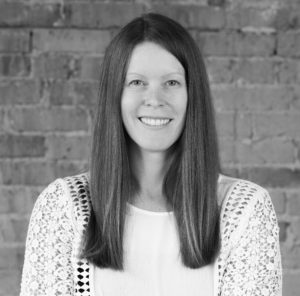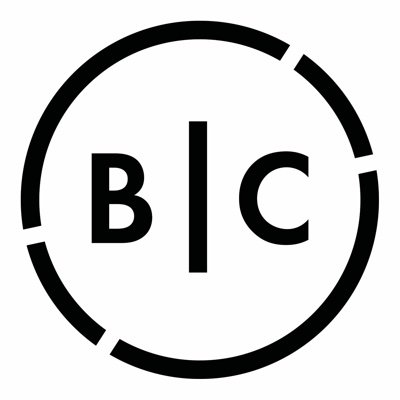Q&A with Karli Barokas, CEO of Barokas Communications

Fresh out of the Foster School of Business, Karli Barokas (BA 1999) joined a boutique Seattle public relations firm founded by her husband as an account executive. Two decades later, she has risen through the ranks to the role of CEO of what has emerged as one of the Northwest’s leading full-service communications agencies. Barokas shares her thoughts on the state of the industry today and going forward, including how her firm has navigated one of the most challenging years in modern history.
Crafting the message
What role does PR play for a start-up business?
PR is important for any company – no matter your size. With startups, we often start work when a company is trying to nail their message before introducing themselves to the industry and potential customers. PR continues to play an essential role when startups begin to accelerate their businesses, go head-to-head with competition, enter new markets, increase market share, etc. We partner with our clients to help them create messaging that will not only resonate with the media, but also differentiate them in the marketplace. I find it really rewarding to look back and see how your work has contributed to a company’s growth and sometimes an acquisition or IPO.
How does your company’s role change based on the size and experience of the in-house team of your client?
Great question, and one that doesn’t get asked that often. When working with small to mid-size companies, we often serve the role of the agency and the in-house PR person if that resource does not exist internally. It’s important to build relationships across the company so we can recommend sound strategies and ferret out story ideas. Startups are often bootstrapped so our daily contact doesn’t typically have the time to do this on their own. When we work with larger in-house teams, we still make it a priority to build relationships within the client’s organization, but the focus shifts slightly so more time can be dedicated to strategy, media placement or other high priority initiatives.
Navigating history in real-time
The pandemic has changed every aspect of life over the past 12 months. What are the key adjustments in your industry and at Barokas specifically?
PR has always been an ‘always on’ industry and COVID has magnified that. The pandemic, without warning, thrust companies into an unchartered territory. No playbook existed for how to deal with a crisis of this magnitude and it was an all hands on deck approach to helping our clients navigate this new landscape. We spent a good part of last year working with clients on internal and external communications strategies, covering everything from remote work to shifts in business models. As a partner, we aim to be the voice of reason for our clients, especially in high pressure situations where emotions can run high.
In terms of the impact on our agency, we were set up to work remotely as we already did that every Friday. We currently work remotely 100% of the time and anticipate moving to a hybrid model once vaccines are widely distributed. It’s important to us that we provide our team with flexibility to work in a way that fits with their lifestyle. Remote work during COVID has proven this model works for us.
The past year has been a year of social and political change. What’s your philosophy to the role of a private company on social and political issues in today’s environment?
This past year has cast an even brighter light on the social and racial injustices prevalent in our country. These issues are front and center for employees in all types of workplaces and cannot be ignored. As a company, you can choose to support change by listening, fostering open discussions, learning and taking action.
Activism is an essential way to make your voice heard and we wholeheartedly support this within our team — whether that’s marching, picketing or making calls in support of causes. We also close on Election Day so our team can exercise their right to vote at the polls.
Her role today
The media landscape has changed so much in the past two decades. What are you doing differently now, and what do you see as the biggest opportunities going forward? 
The media landscape has drastically changed since I started working in PR. With the move to digital, reporters are tasked with covering more beats and producing more stories in a shorter amount of time. On the PR side, we are now highly data driven. Securing that killer story is just the start. We want backlinks in those stories to build SEO for clients. And we want to amplify those stories across social to drive even more value.
The heart of PR is really about the ability to influence others — whether that’s to purchase a product, recommend a brand or share information. Today, this is done across a wider variety of channels — traditional and online media, social media, events, webinars, podcasts — the list goes on, and on. It’s our job to help clients understand which of these channels will net the biggest impact for their brand.
While there is more noise to cut through the one thing that hasn’t changed is the need to tell a good story. That will win every time.
What does the role of a CEO look like a company of your size?
My role is a mix of many different things — agency strategy, financial management, business development, and client service. In PR, it’s common for people moving up in title to stop working with clients and media directly. It’s my belief that in order to effectively guide a PR team, you need to understand what opportunities and challenges they face on a daily basis, and how the media landscape is responding. If you get too far away from these things, it will be hard to make the best strategic decisions for your organization.
Lessons from Foster
You attended Foster as an undergrad. Did know as a college student the path you wanted to take?
I wasn’t sure what path I wanted to pursue when I started at the UW, but found myself gravitating towards business and communications. I ultimately decided to apply to Foster as I believed a foundation in business would serve me well in whatever career I decided to pursue post-graduation. Through my coursework and internships, I narrowed down my focus to marketing. I love the strategy behind marketing and the need to understand all facets of the business to be successful in this role. The important thing to remember is that while college can provide you with a solid foundation for a career, it is how you use and continue to develop the knowledge you learn there that counts.
In one of my marketing courses at Foster, we were asked to develop a SWOT for a beer company in Japan. This might sound like a basic thing, but I use a SWOT analysis nearly every week as part of our new business pitch process. It allows us to show clients how we think and our analysis of their place in the industry. Sometimes it’s those little things that stick with you and make a difference down the road.
What advice would you give today’s Foster students seeking a career in public relations?
For those seeking a career in PR, my advice is to embrace curiosity. You need the desire to learn everything you can about your client, their industry, trends shaping a sector, competition, customer needs and more to be successful. Curiosity also means being a continual student of your profession.
